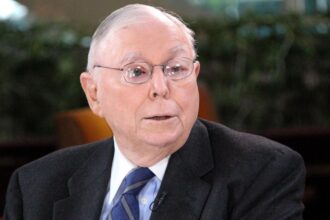We have recently collaborated with KPMG Private Enterprise to create the Family Office Compensation Benchmark Report 2023. From our surveys, we found that a hefty 40% of Family Offices worldwide do not have an Investment Committee.
Investment is at the core of a Family Office. While many Family Offices have their dedicated team of investment professionals that manage their investment portfolios, the importance of an Investment Committee is often overlooked in the Family Office world. This article discusses the importance of an Investment Committee and provides insight into why your Family Office may need it.
An Investment Committee refers to a group of experts that are responsible for overseeing the investment decisions on behalf of the Family Office. The objective of an Investment Committee is to establish a prudent process to manage investment strategy, it is primarily responsible for strategic oversight as well as monitoring the performance of the investment portfolio. Family Offices generally invest across multiple asset classes, the committee can conduct research to identify related investment opportunities and recommend appropriate strategies.
One of the many responsibilities of an Investment Committee in a Family Office is to help develop an Investment Policy Statement (IPS). An IPS provides the foundation of all the investment strategies of a Family Office by outlining the investment objectives and risk tolerance of the Family Office. The IPS will also ideally have the benchmarks that measure performance. An effective Investment Committee can ensure that the Chief Investment Officer (CIO) and investment team are aligned with the IPS and assess their performances accordingly. Meetings are typically held two to four times per year, allowing regular reports and updates to be provided to the family. The committee will document the investment processes and decisions to provide a reference that serves as a guide for future decision-making.
Tayyab Mohamed, the Co-Founder of Agreus advises, “Investment Committee is a good practice for all Family Offices to have. It eliminates centralised power and decision-making in the hands of one person and reduces the risk for the family.” Family Offices are generally smaller in scale compared to large corporations. They are less professionalised in nature which results in weaker governance structures and over-centralisation of decision-making power. Investment Committees create a system of checks and balances and act as an additional layer of scrutiny. The committee will also provide transparency by enabling an open discussion of the portfolio performance. Most importantly, the presence of an Investment Committee can mitigate risk associated with investment decisions, ensure consistency in investment policies and that all investment decisions are made in alignment with the Family Office’s objectives.
The composition and structure of an Investment Committee can be tailored to the Family Office’s needs and the complexity of assets. The committee can be composed of members including external advisers or just in-house teams. It may also be set up as an ad hoc committee that meets as needed. Investment Committee typically consists of an odd number of professionals with finance, investment, legal and accounting backgrounds. A diverse Investment Committee consisting of members with different expertise, knowledge, skills and abilities can offer a variety of perspectives to the Family Office, allowing them to make an informed decision.
Setting up an Investment Committee requires careful consideration. A misalignment of interests may arise if the members fail to have a clear understanding of the family’s interests and objectives. In this regard, Mohamed suggests that a key member may chair the Investment Committee along with trusted advisers to ensure the alignment of interests. Investment Committees must ideally be composed of family and non-family members to ensure objectivity. Investment committees have a fiduciary responsibility. Accountability measures should be in place to ensure that all the committee members are performing their duties and held responsible for their decisions.
Overall, an Investment Committee can help act as a guardian of the wealth of the family. It is an effective control mechanism that creates a system of checks and balances. An effective Investment Committee can assist a Family Office in achieving its short-term and long-term investment objectives.
Read the full article here










